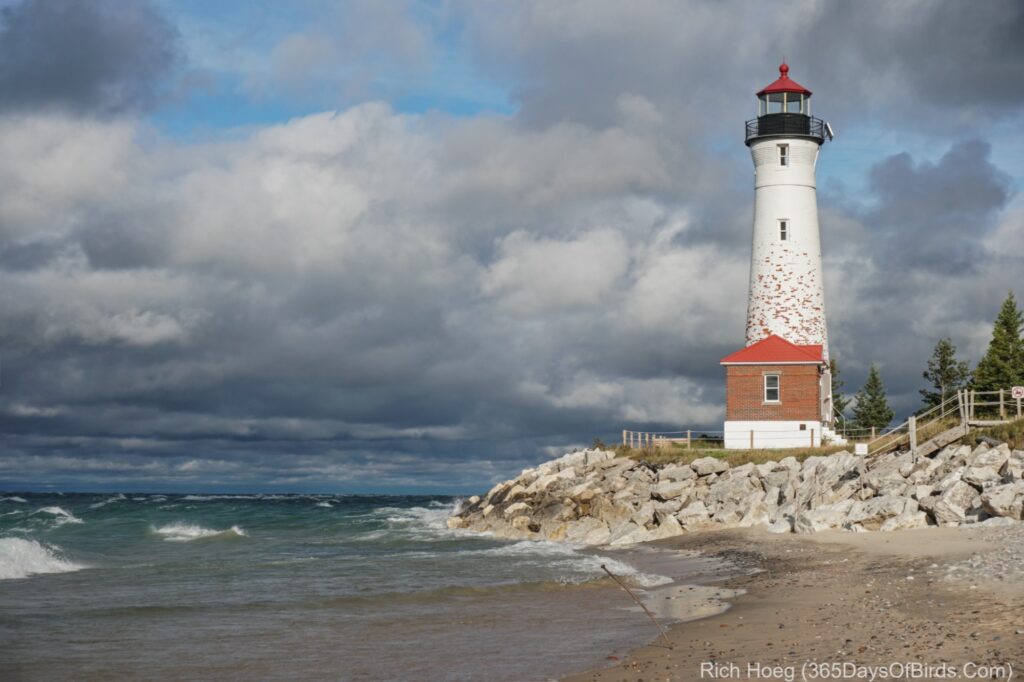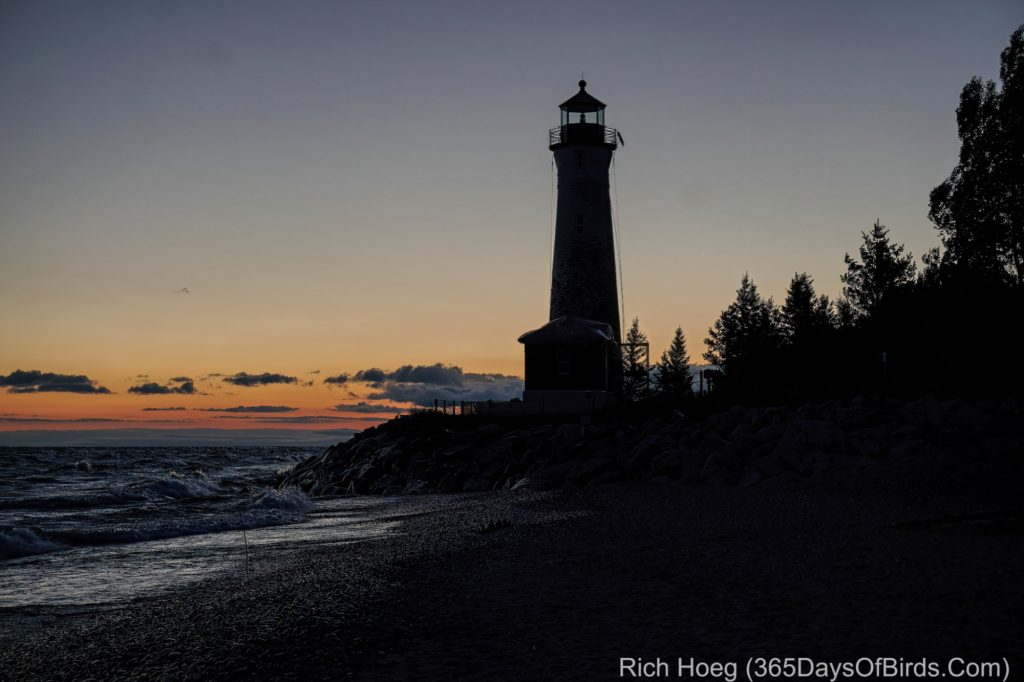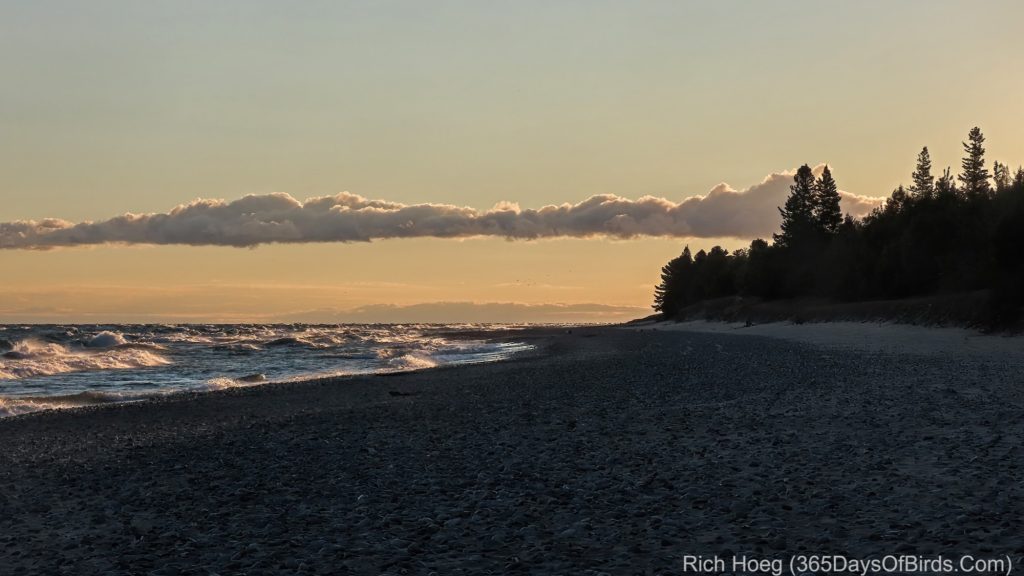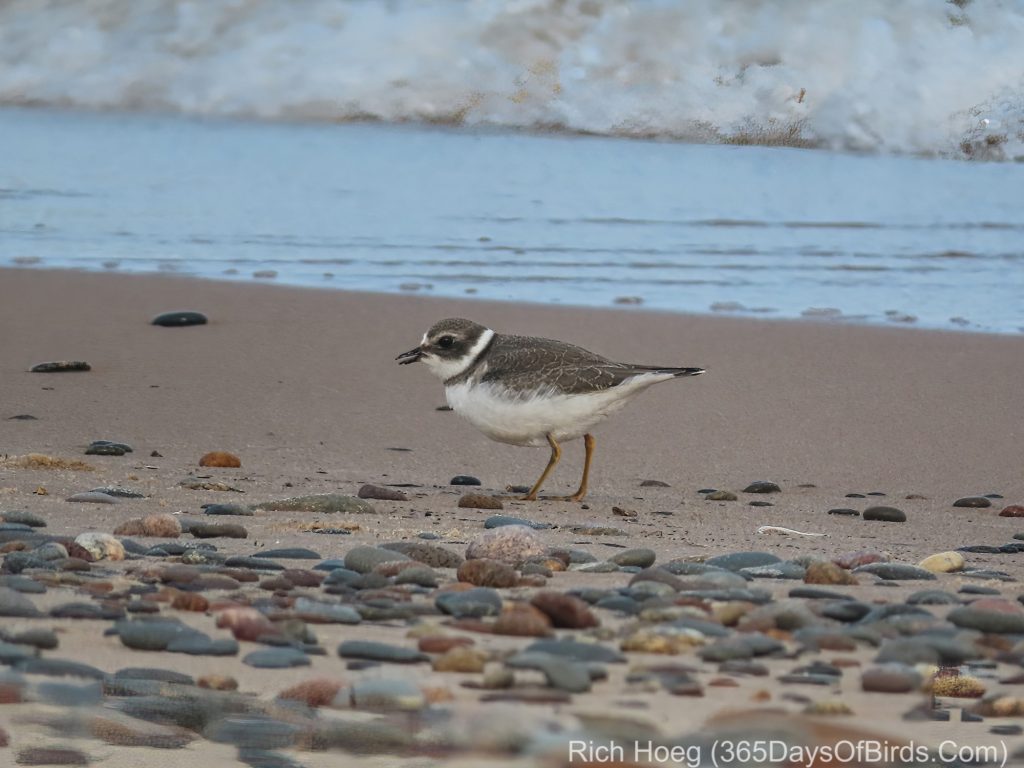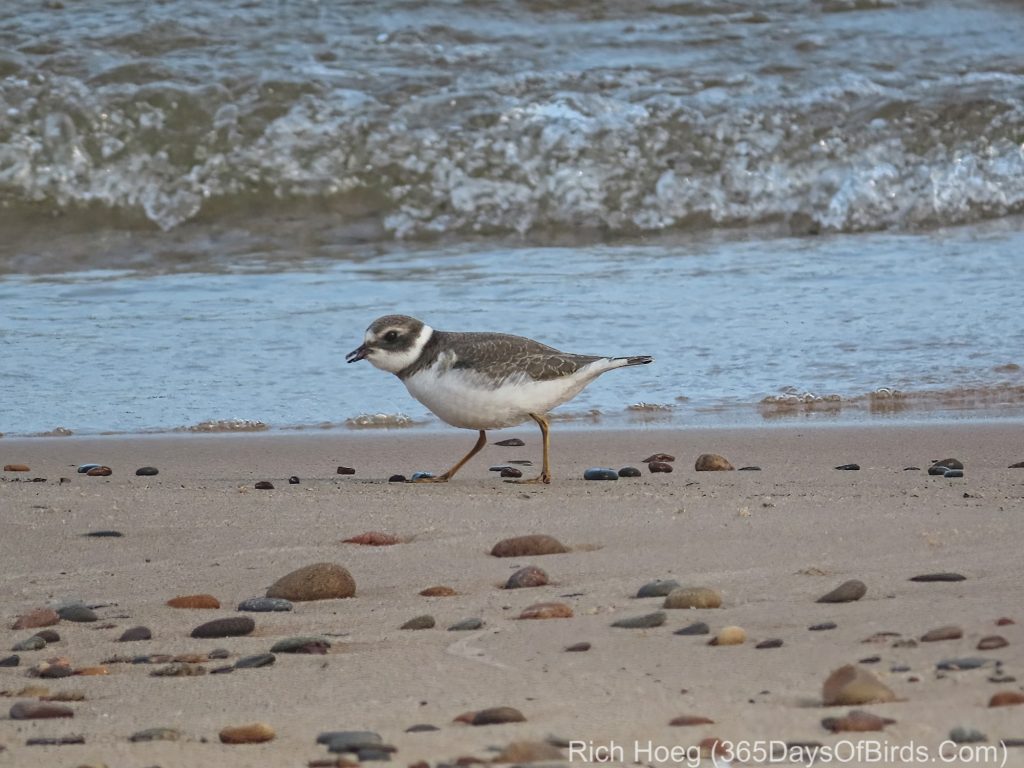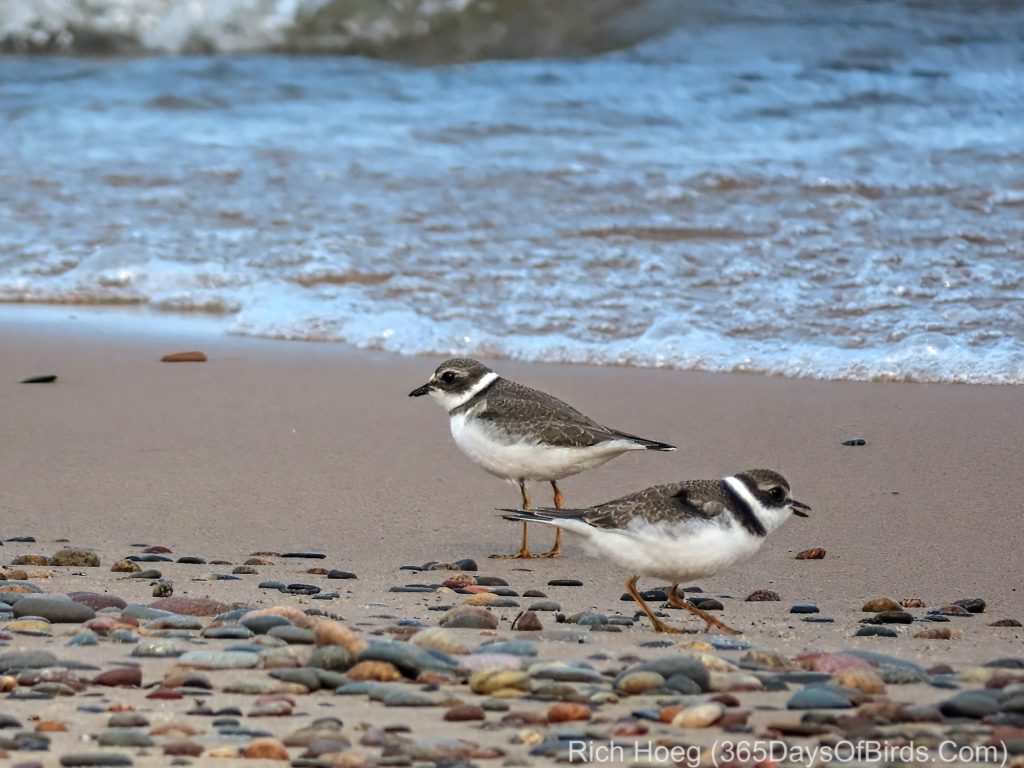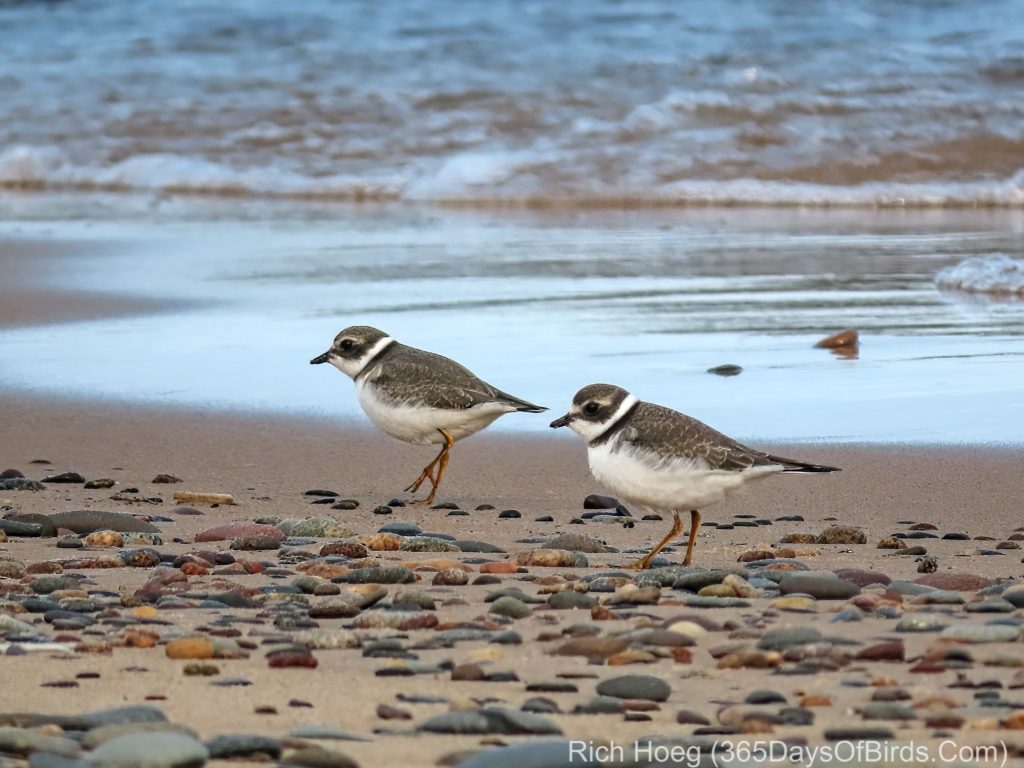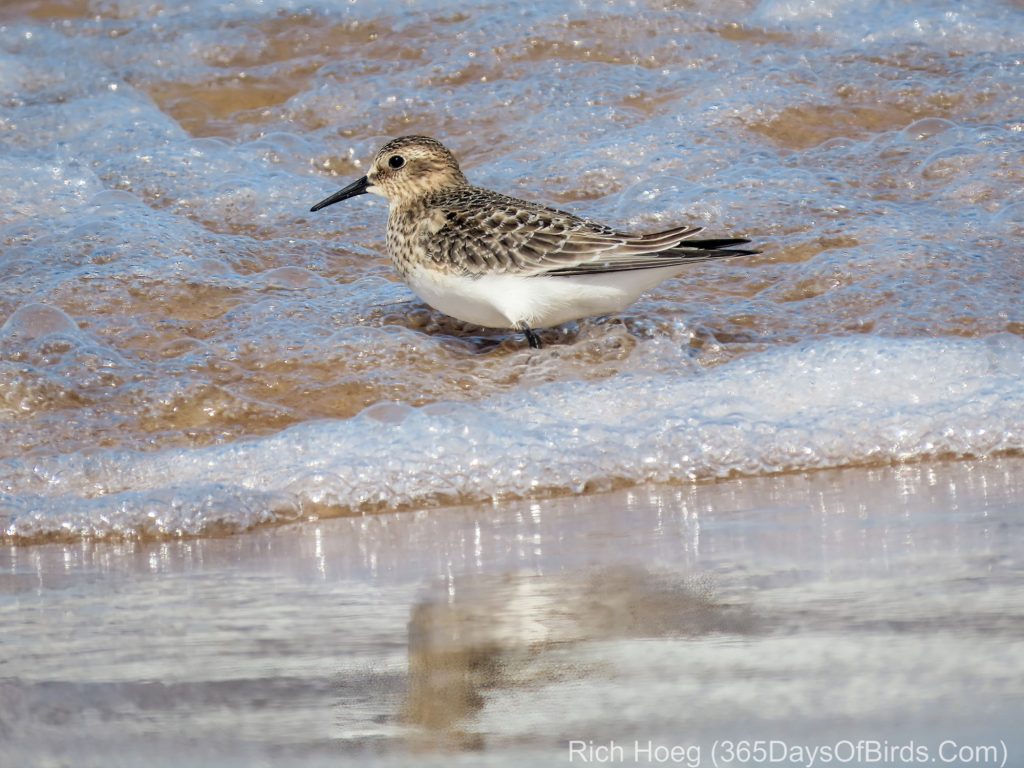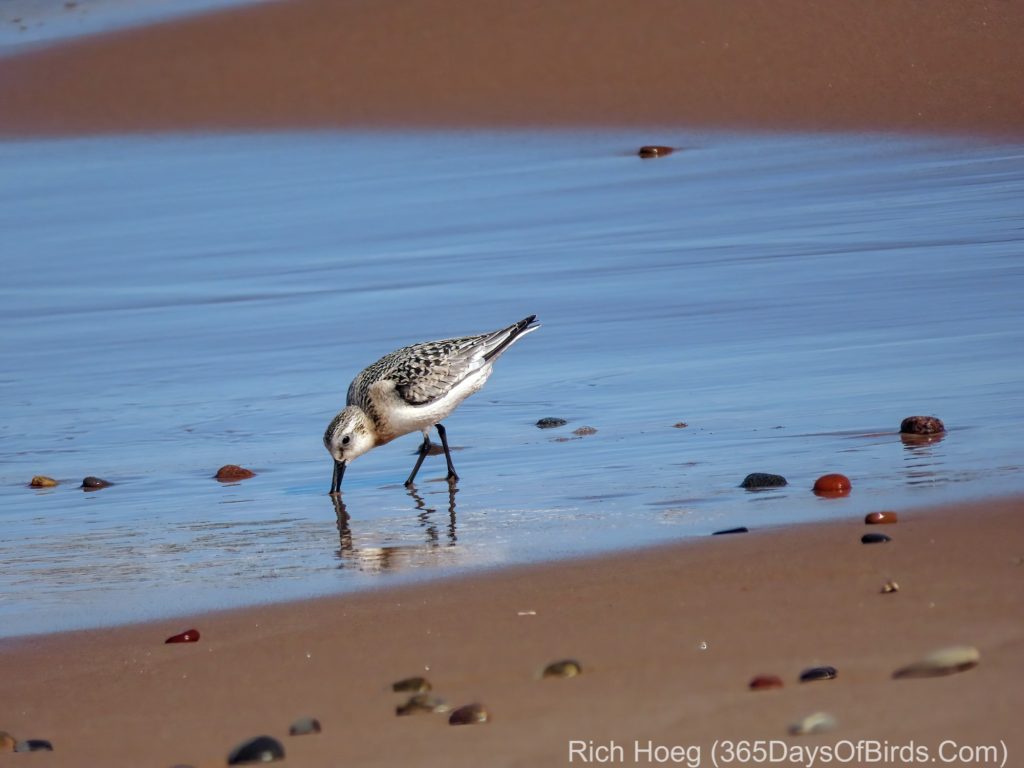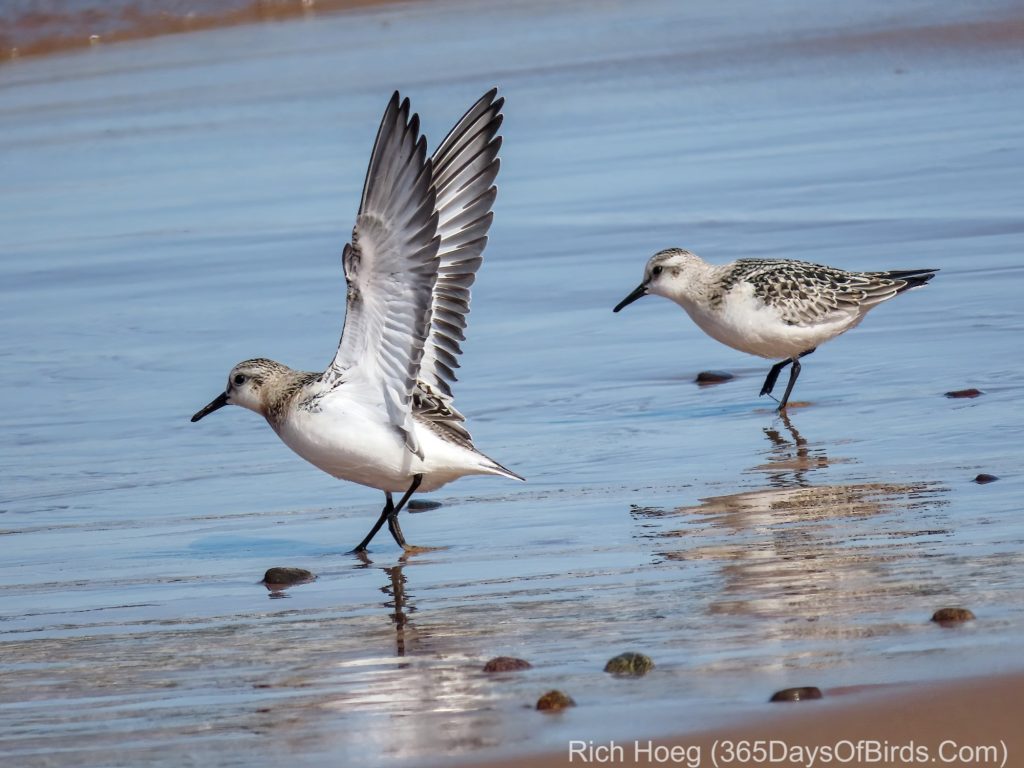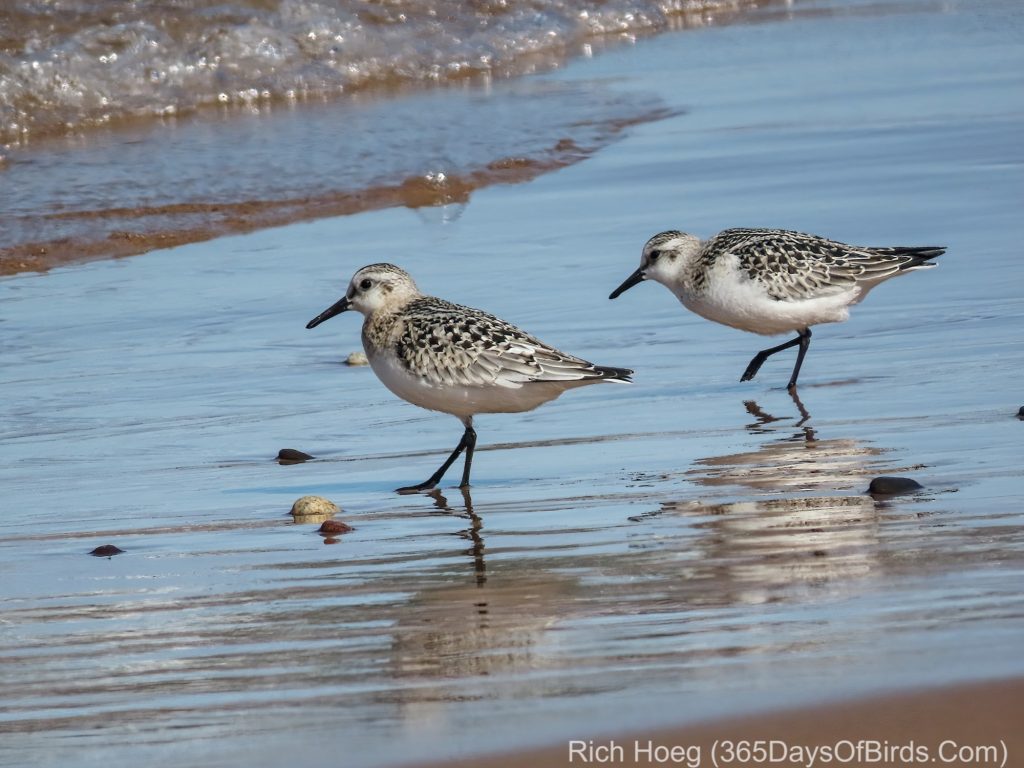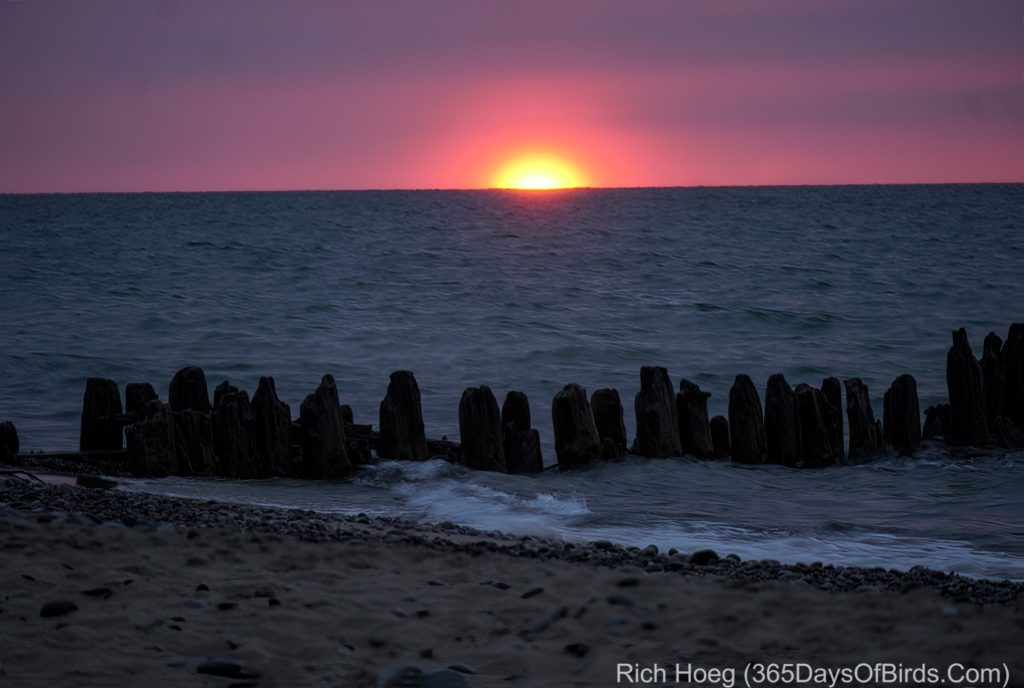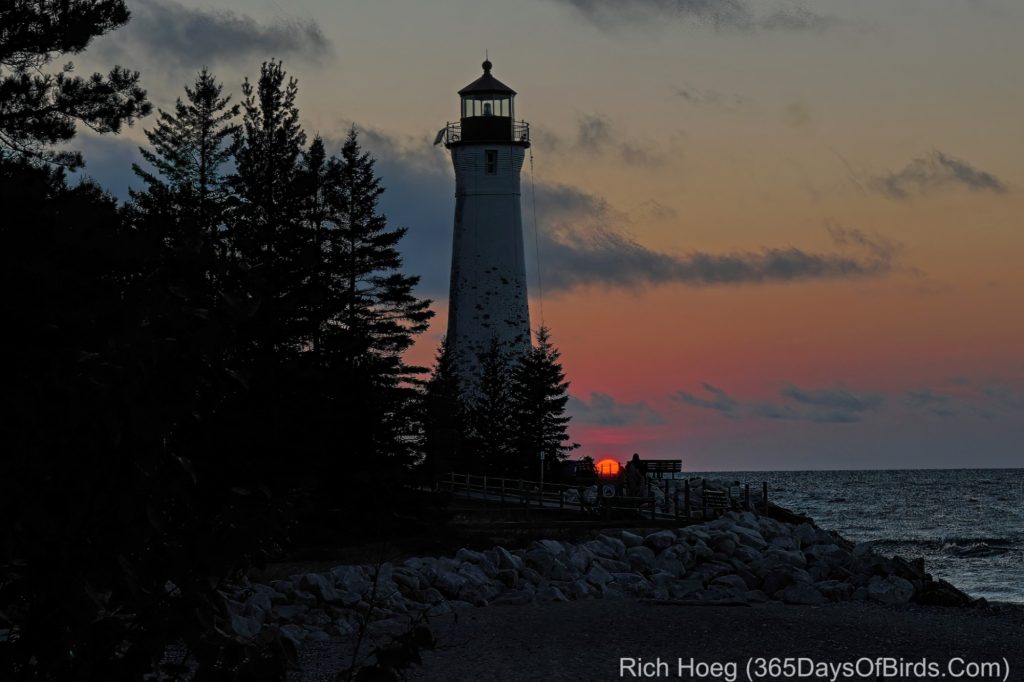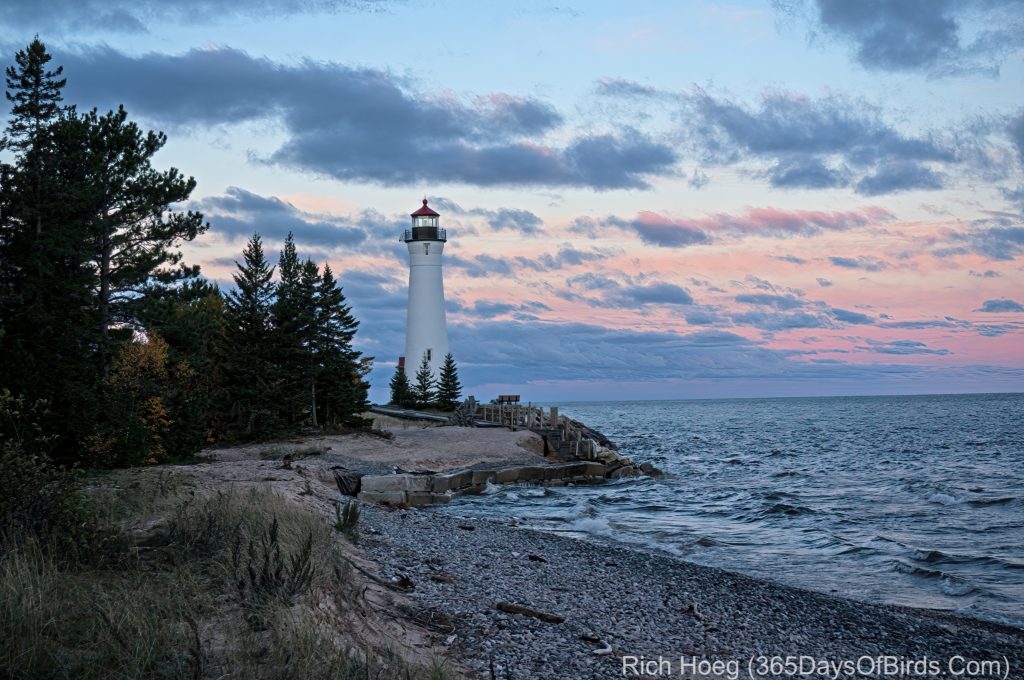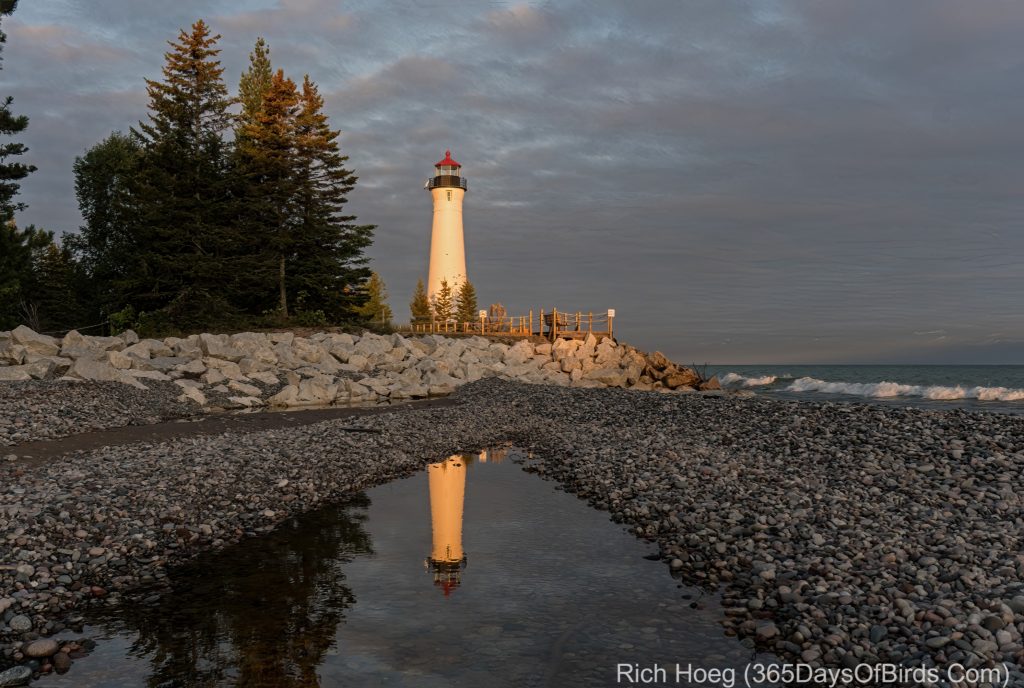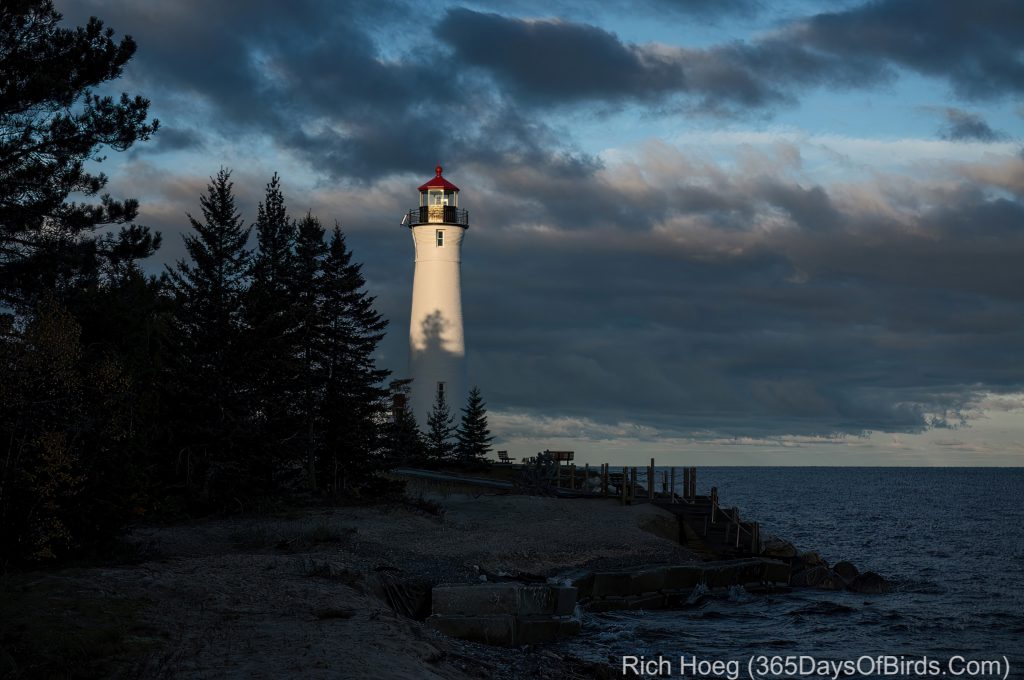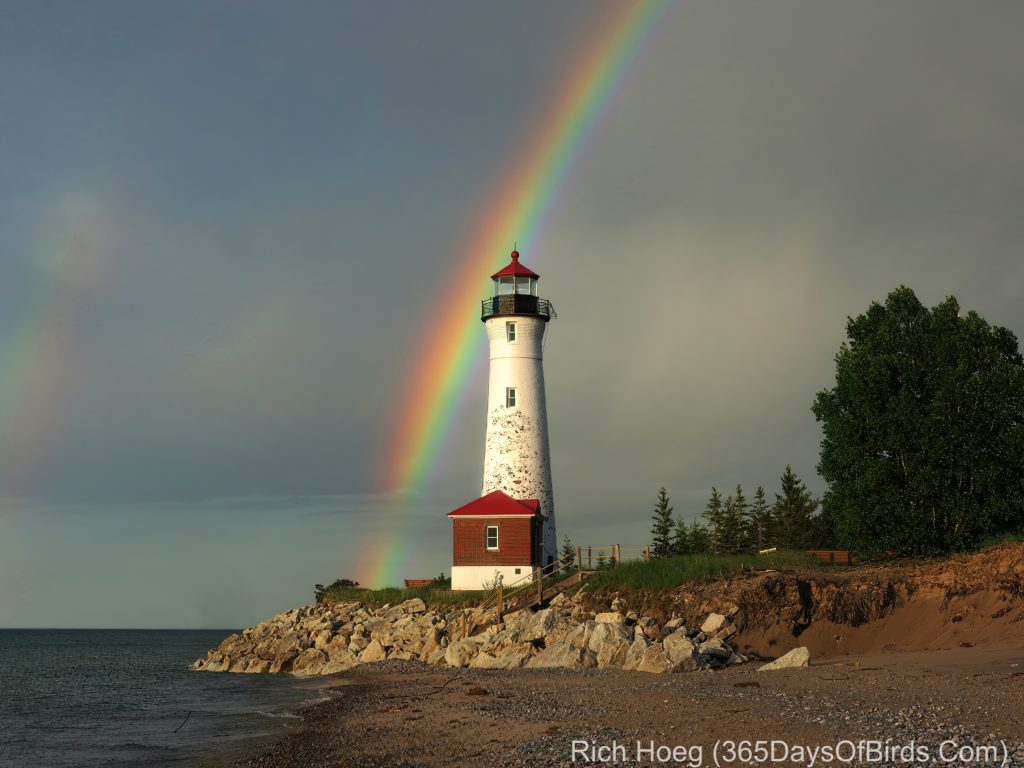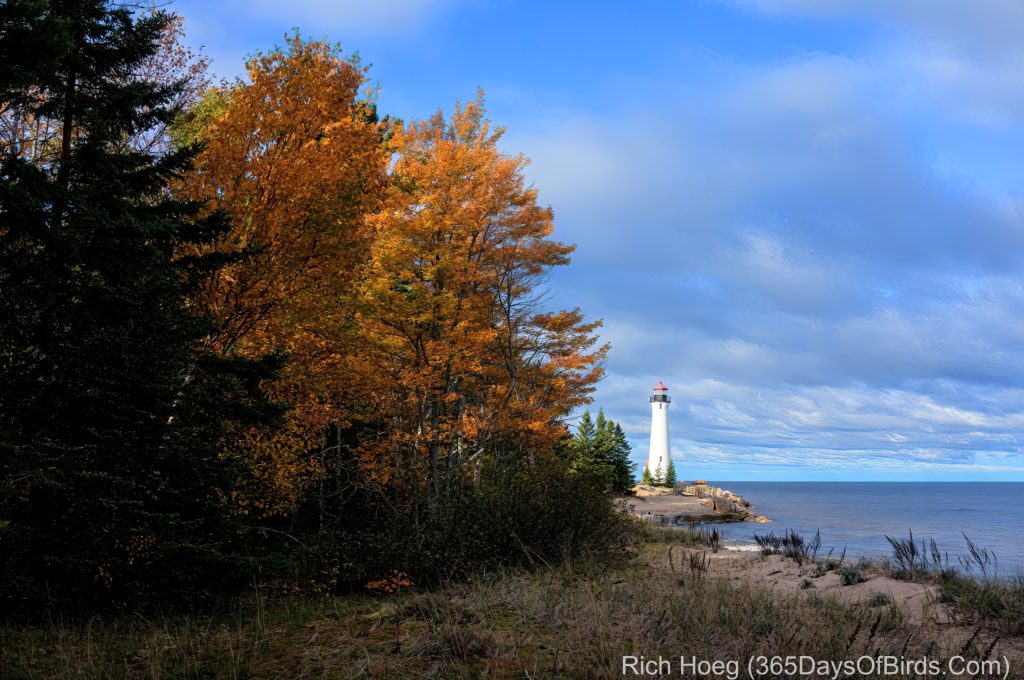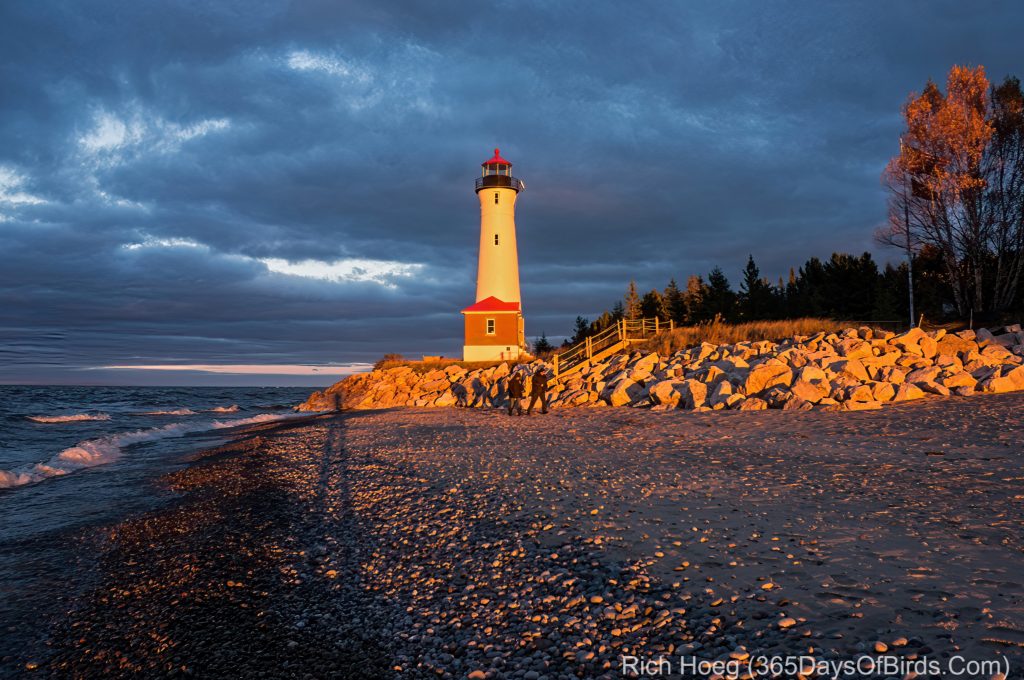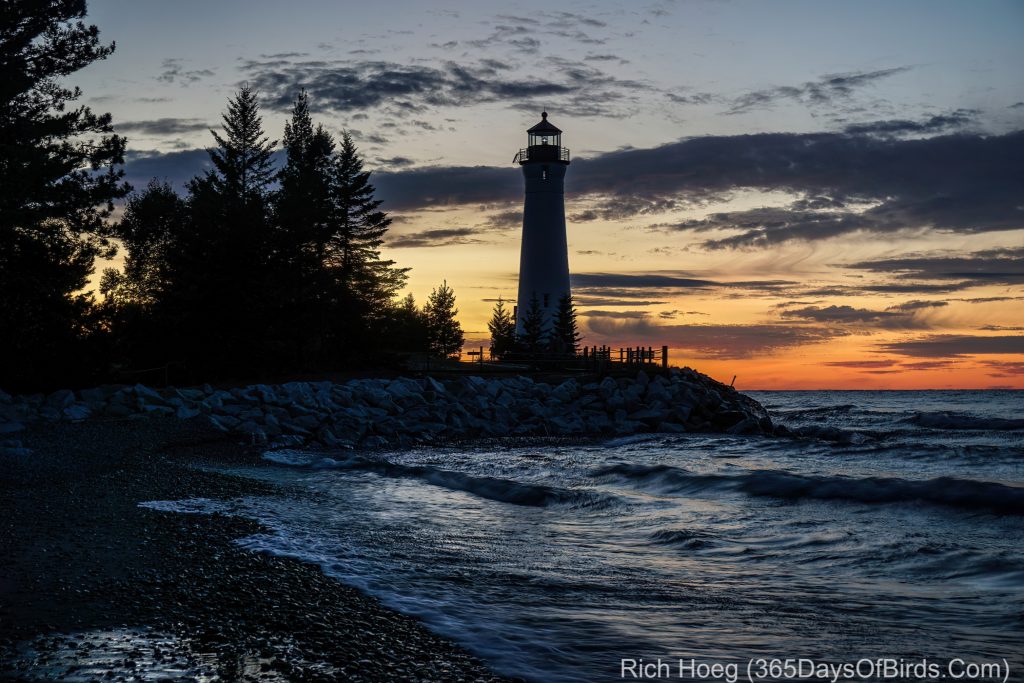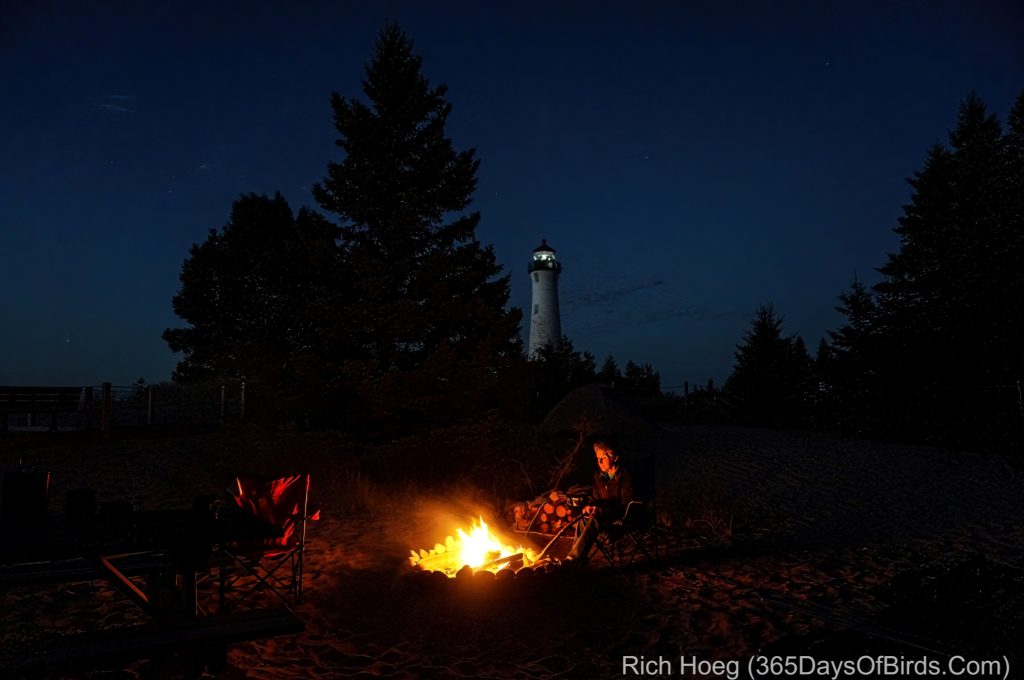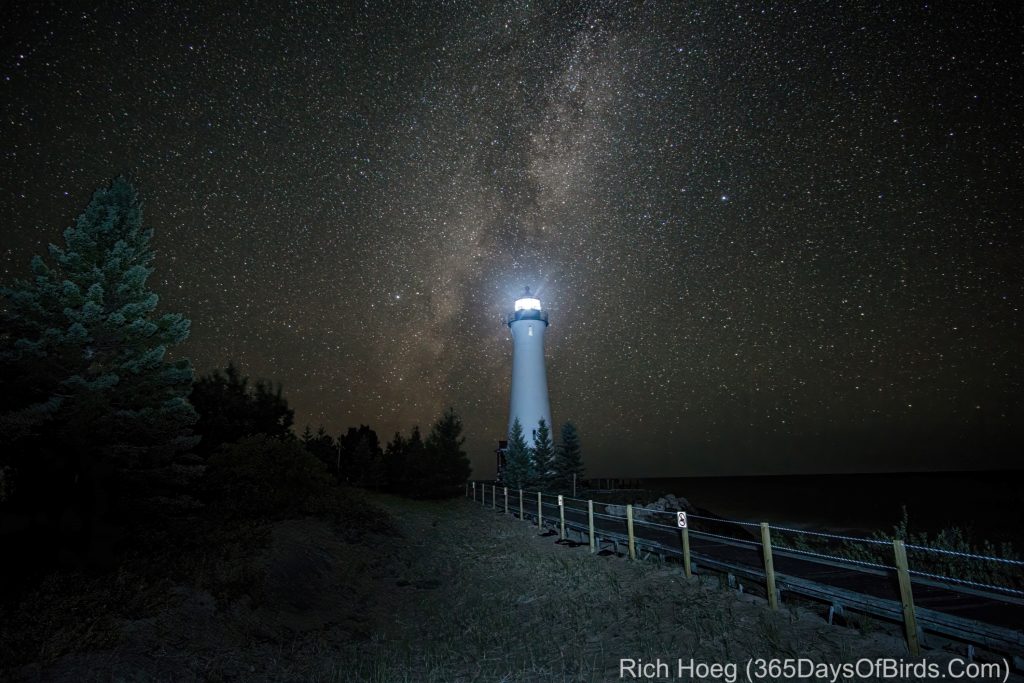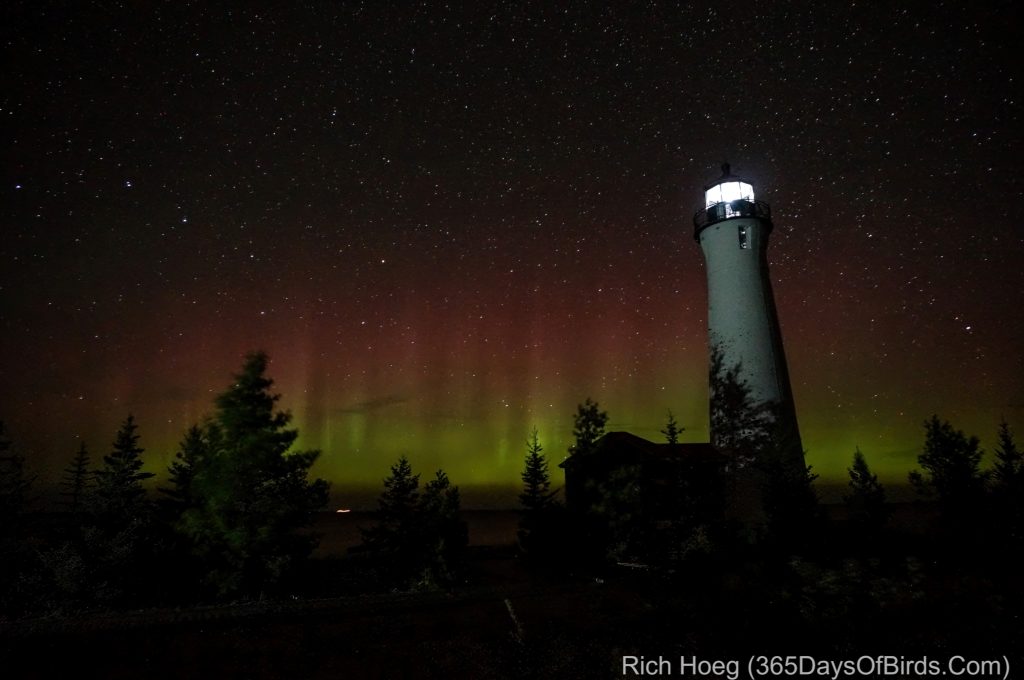I am back on the grid after a delightful week at Crisp Point Lighthouse. While the sugar sand underneath my lighthouse keeper’s tent made for comfortable nights in my sleeping bag, it is always nice to get back in a bed. Even my Great Horned Owls welcomed me back as we drove in the driveway 45 minutes post sunset. The owlets were screeching / begging for a handout from their parents. As a reminder, Crisp Point is at the other end of Lake Superior from my home on the northern edge of Duluth.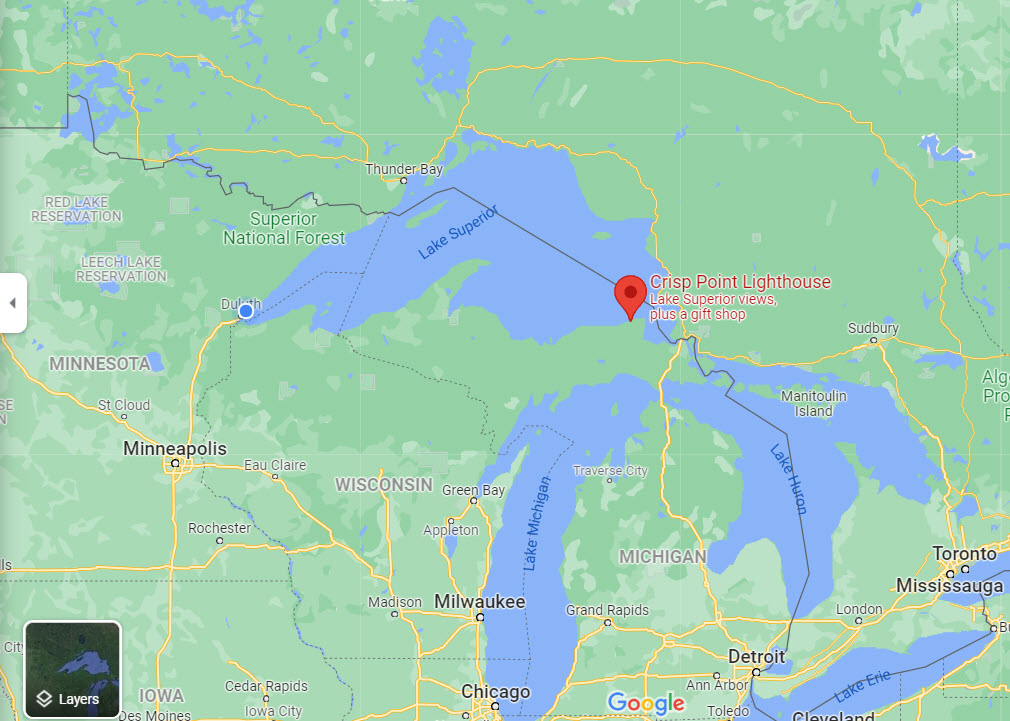
This begs the question, why am I talking about Crisp Point, yet the title of this post is “super zoom cameras”? The answer is last night I read an excellent article in the magazine, Outdoor Photographer, “Super Zoom Cameras for the Trail“. I could not agree more heartedly with the article and its three camera recommendations for folks out on the trail, the Canon SX70, the Nikon COOLPIX P1000 and finally the Sony RX10 IV. I recommend reading the article, but will also note there are very important differences between the three cameras in terms of image quality:
- Sony RX10 IV: Largest sensor and best quality images. Limited reach (25x) of telephoto makes it difficult to photograph small birds. You must be able to get closer to smaller subjects.
- Nikon COOLPIX P1000: Longest telephoto reach (125x) but because of the smaller sensor (same sensor size as Canon SX70) the extra telephoto reach degrades the quality of the images. One may, however, take photographs an amazing distance away from the subject.
- Canon SX70: The telephone reach is 65x … less than the Nikon but more than the Sony. I think this is the sweet spot for bird photography. With practice and learning of habitat, the 65x zoom should get you close enough to small birds. The image quality at full zoom is much better than the Nikon. Read my own reviews of the Canon SX70.
- Reminder: Super Zoom cameras are much, much less expensive and lighter than a DSLR with a very long lense. The Super Zoom cameras need strong light to take good pictures.
I use two cameras:
- Canon SX70 Super Zoom: bird photography except owls
- Sony A3000: landscape / night photography and owls
The Sony a6300 is a mirrorless camera with a much larger sensor than my Canon. The exception for owls is because I have learned how to get very close to these birds without spooking them, and they are a much larger subject than songbirds. In general if I am able to get close to a larger bird, I will always use my Sony.
Now for some pics …
These two images were taken yesterday afternoon with my Canon. The buck visited my bird feeders.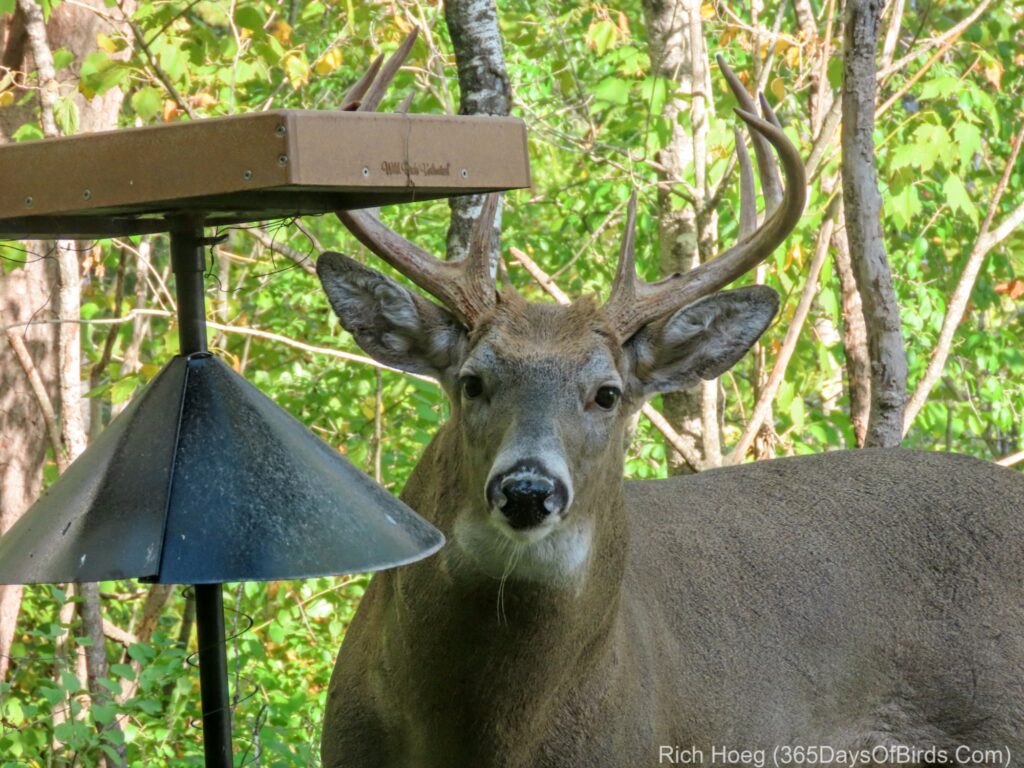
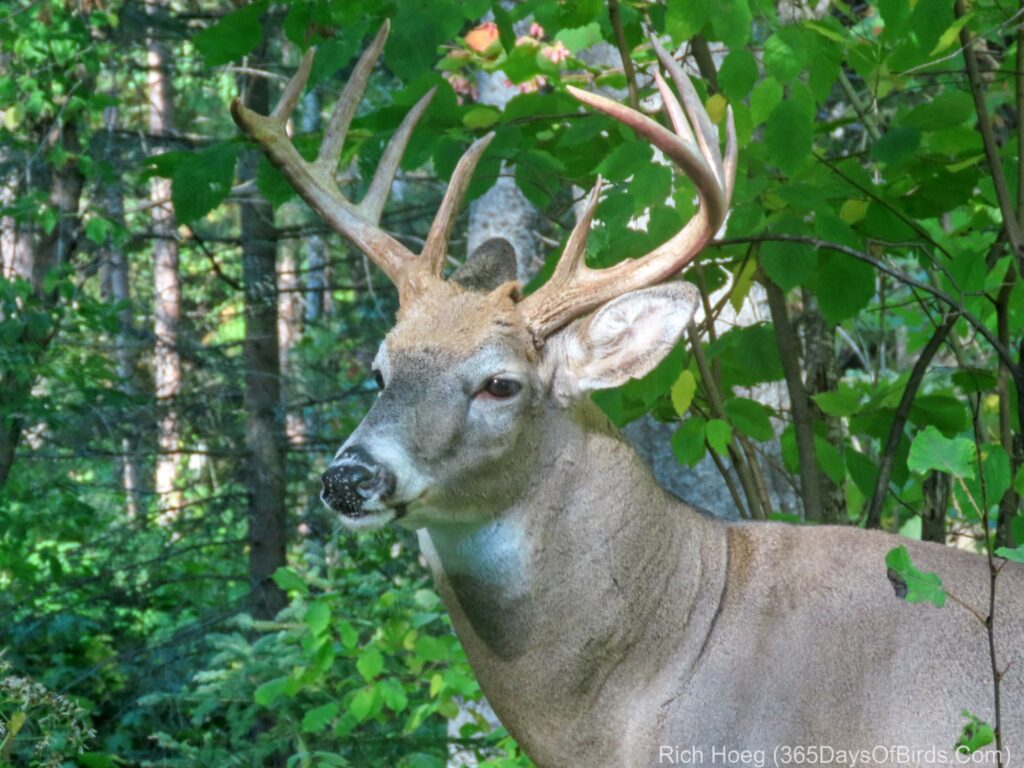
I photographed these Sanderlings on the beach at Crisp Point with my Canon.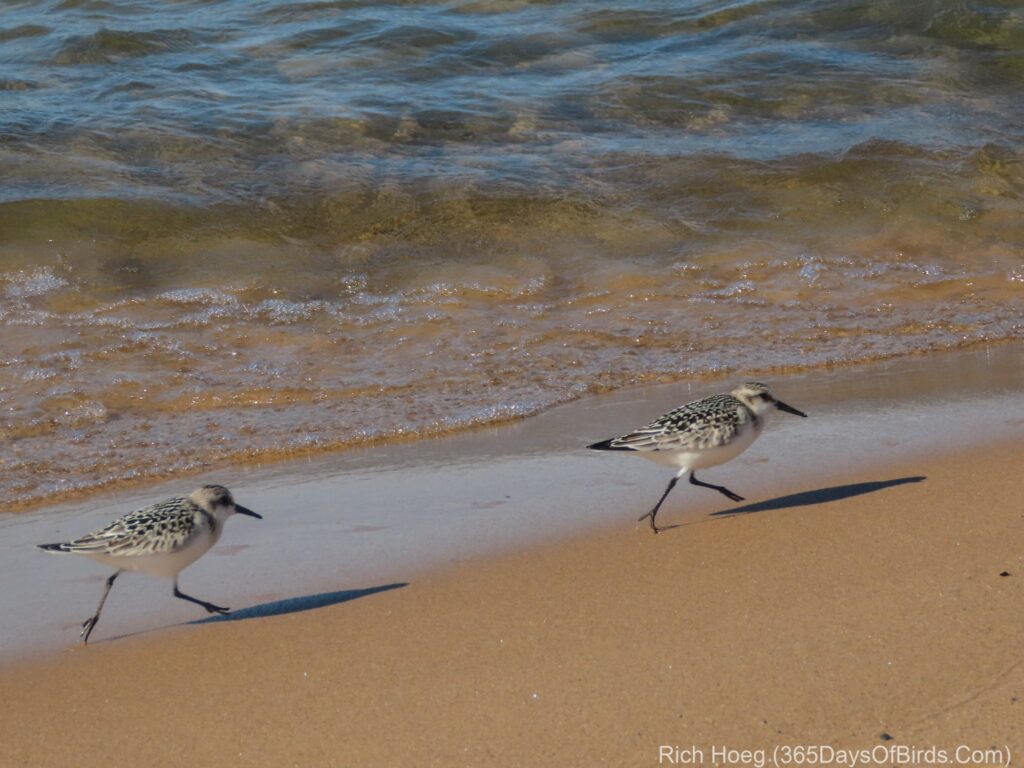
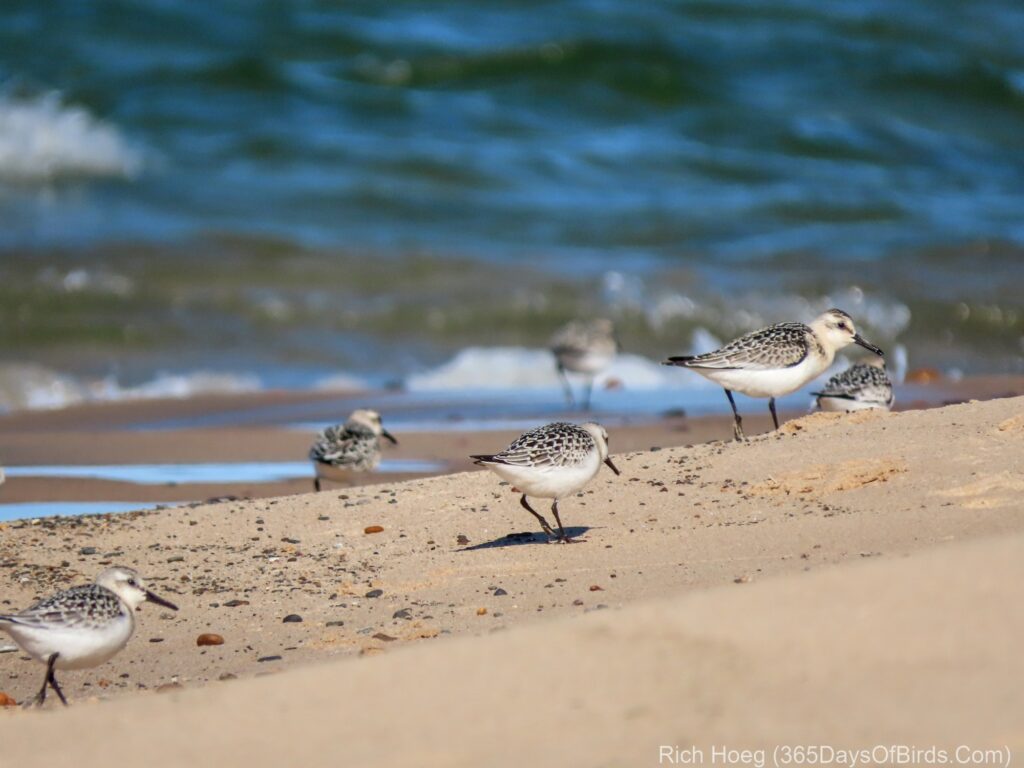
Another Crisp Point Lighthouse photograph taken a bit before sunset … taken with my Sony.